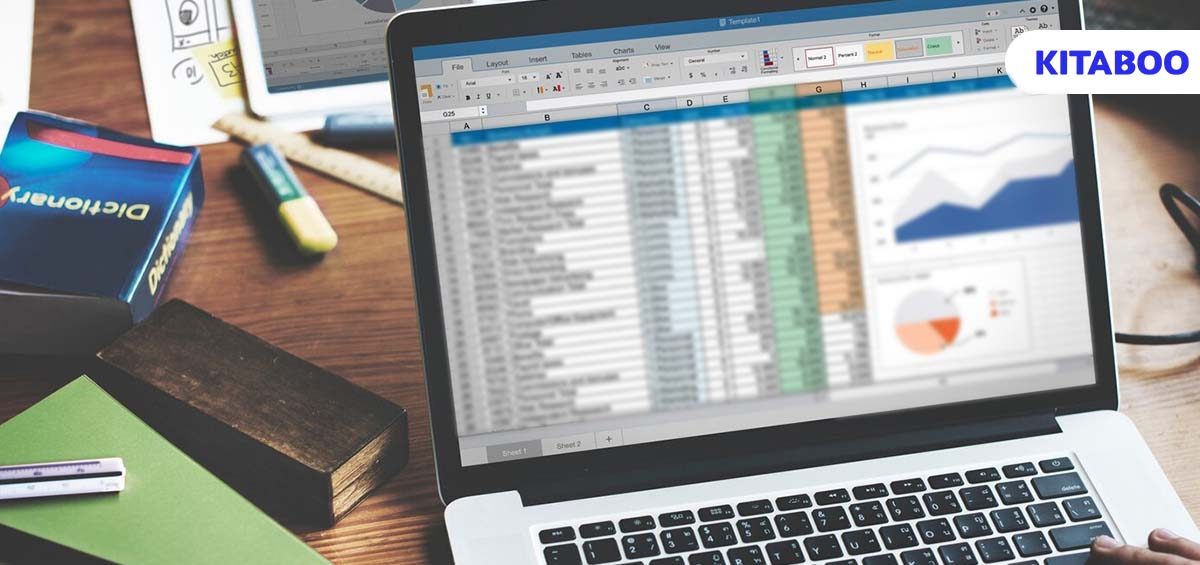The rapidly evolving digital age of today requires students to prepare for the technology-driven world of tomorrow. In this context, personalized learning has emerged as a robust approach for educators to drive positive learning outcomes.
Personalized learning, enhanced by technology, provides educators with a powerful means to cater to the diverse learning needs of students. So, what drives personalized learning?
Educational data management is the backbone of this educational approach.
By harnessing educational data, educators can ensure tailored learning experiences for every student. With the easy accessibility of digital textbook platforms like KITABOO, educators can leverage educational data to customize instructions and learning.
In this blog, we explore how educators can leverage educational data management to achieve the goal of personalized learning.
Table of Contents
I. What is Personalized Learning?
II. Significance of Personalized Learning Experiences
III. How to Leverage Educational Data Management to Personalize Learning
- Customized Learning Paths
- Adaptive Instructional Strategies
- Detection of At-Risk Learners
- Formative Assessment and Feedback
IV. Wrapping Up
What is Personalized Learning?
Personalized learning refers to customizing educational techniques and learning experiences to suit each learner. The customization is based on the learning preferences, needs, abilities, skills, previous experiences, and background of the learner.
In this educational approach, students gain a deeper understanding of their learning. Since their habits and preferences align with their learning methods, students can learn faster and improve their performance.
Educators can deliver personalized learning through various activities and methods. For instance, they can use interactive videos, gamified content, and simulations. Another effective way is to create interactive eBooks on a digital textbook platform like KITABOO to ensure customized learning. Educators can develop such books to suit different learning styles and make educational content more inclusive.
Significance of Personalized Learning Experiences
As stated above, personalized learning caters to the needs of each learner. This approach offers a big advantage over the traditional one-size-fits-all system.
Every learner is different and has a distinct way of learning and understanding concepts. Personalization enables students to learn in their unique style and at their own comfortable pace, which creates opportunities for understanding concepts better and increasing knowledge retention.
By crafting personalized learning experiences, educators and educational institutions can maximize the learning potential of students. Further, digital textbook platforms like KITABOO can provide educators valuable insights into student progress through educational data management. Such insights can help educators determine the effectiveness of their teaching strategy and fine-tune it accordingly.
Here are some of the major benefits of personalized learning.
- Personalized learning reduces the time students need to understand the concepts of a new topic or subject.
- This learning approach helps students to become more engaged, motivated, and responsive to the learning strategies.
- When the instructional content is based on the existing knowledge of learners, it becomes easier for them to retain knowledge and build towards more complex topics.
- Personalized learning paves the way for improved academic outcomes by delivering relevant content to learners.
How to Leverage Educational Data Management to Personalize Learning
With technological advancement, educational institutions today have easy access to educational data. Through effective data management, they can take actionable steps required to deliver customized learning experiences.
Here’s how educators can leverage educational data management to personalize learning and drive improvements.
Customized Learning Paths
Analysis of educational data remains at the core of delivering tailored learning experiences. By leveraging data-driven insights, educators can gain a deeper understanding of the strengths and weaknesses of each learner. Integrating this knowledge with adaptive technologies can help create customized learning paths and maximize learning potential.
Tools like KITABOO Insight can enhance customization in learning modules by:
- Tracking content consumption and monitoring the progress of learners
- Identifying actionable patterns that can drive informed decision-making
- Using these data-driven insights to improve content quality and personalize learning based on the interests of each student
Adaptive Instructional Strategies
Identification of effective instructional strategies is essential to ensure personalized learning and positive outcomes. Data analytics highlighting the engagement and performance of each student helps educators understand the effectiveness of their instructional methods. By adapting teaching methods and optimizing instructional content, educators can drive learner engagement and progress.
Here’s when digital textbook platforms like KITABOO can make an impact. The in-built KITABOO Insight analytics tool can monitor learners’ interaction with the instructional content. Educators can personalize content based on these data-driven insights. Once they gain a deeper understanding of learner needs, they can tailor interventions and adjust their teaching strategies accordingly.
Detection of At-Risk Learners
Early detection of learners at risk of lagging academically can enable educators to deliver personalized learning. Educators can analyze multiple data points, such as performance grades, engagement metrics, attendance, etc., to identify such learners. By intervening early on, educators can ensure adequate support and prevent the learner from falling further behind.
Educators can leverage KITABOO not just to detect such learners through data analytics but also to extend effective learning strategies. They can create interactive eBooks embedded with multimedia learning resources based on the learning preferences and styles of the students. These can include interactive videos, images, infographics, audio, assignment widgets, gamified content, and more.
Formative Assessment and Feedback
The arrangement of continuous assessment and feedback strategies aids personalized learning. Evaluation tools like interactive quizzes, MCQs, questionnaires, etc., can help educators monitor student progress. Educators can draw insights from the assessment patterns to identify the areas that need enhanced attention and support.
In this context, KITABOO’s innovative methods for evaluation and feedback can empower educators to address such requirements effortlessly. The platform offers advanced mechanisms for formative assessment. Further, it provides constructive feedback to encourage learner improvement. Educators can leverage learner performance data to make informed modifications to their instructional content, ensuring improved academic success.
Wrapping Up
Personalized learning is a dynamic instructional process. By leveraging educational data management, educators can customize learning to address the distinct needs and preferences of individual learners. A data-driven student-centric approach requires planning, innovation, and implementation for effective execution.
Most importantly, tailoring content requires access to accurate data and deep insights into the learning patterns for educators to deliver customized education effectively. Partnering with a relevant platform can help in this regard.
By collaborating with the digital textbook platform of KITABOO, you can address your requirements for educational data to personalize learning.
To learn more, connect with us now!
To know more, write to us at KITABOO@hurix.com.
Suggested Reads:
Discover How An Ebook Conversion, Publishing & Distribution Platform Can Help You
Kitaboo is a cloud-based content platform to create-publish & securely distribute interactive mobile-ready ebooks.
You May Also Like









